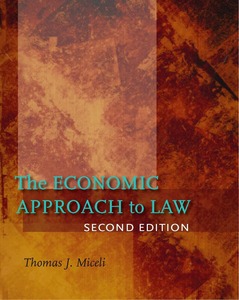Chapter 8
Adversarial versus inquisitorial systems
The Anglo-American process for resolving legal disputes is adversarial in the sense that each side, the plaintiff and the defendant, presents its best case before the judge or jury, which then decides which side’s case is more likely to be true. Truth emerges through the self-interested competition between the parties. In continental Europe, Japan, and other non-English speaking countries, in contrast, an inquisitorial system is used, under which a judge presides over the gathering and presentation of evidence. In this system, truth emerges through the unbiased and probing efforts of the judge. Which system is better at arriving at a correct resolution of legal disputes?
At first glance, the inquisitorial system seems better. First, a single party gathers evidence, thus avoiding the duplication of effort when the two sides are acting separately. Also, the goal of the judge is to find the truth, whereas in the adversarial system, parties pursue their own interests, which often involves their attempting to hide evidence favorable to the other side. A more careful analysis, however, suggests that evidence gathering, which is crucial for an accurate result, may in fact be better in an adversarial system. The idea is that, if each party employs a lawyer who is motivated, either financially or for reputation purposes, to win the case, then the lawyers acting separately will tend to work harder to gather evidence favorable to their side than will an impartial judge who has no personal stake in the case. And even though each side has an incentive to conceal evidence contrary to its case, the other side has an equally strong incentive to present that same evidence. Thus, all evidence that is probative will tend to come out, leading, on average, to a better quality judgment.
In the end, of course, it is an empirical question which system is better. Unfortunately, such studies are quite difficult to conduct because of the problems of controlling for all factors besides the system itself which might affect the outcome of legal disputes.
For further discussion of this issue, see Katherine Spier (2007) “Litigation,” in Polinsky and Shavell, eds., Handbook of Law and Economics, Volume 1, North Holland.
